Somewhere around 2:00 p.m. on Thursday, 14 March, I hustled down Tremont Street in Boston, swinging my bag from one shoulder to the other to equally distribute the weight. I blocked the sun from the screen on my phone, checking the directions and thinking “I’m going to be late….como siempre.” It was too early to check in to my hotel anyway, so I took a right on Stuart and left on Washington Street. It was cold in the wind tunnel created by Boston’s narrow streets, but I pulled my sweater closer and picked up the pace until I caught sight of the twinkling lights of the Paramount Theatre, where I would spend the next three days attending the tenth anniversary convening of the Latinx Theatre Commons (LTC).
I ascended the dark wood staircase and checked in. I was given a nametag and told to pick stickers; the color-coding of said stickers was explained to me. Each color corresponds with your role—actor, writer, producer, director, etc. I picked a pink sticker and an orange sticker. Playwright and performer. I promptly forgot which color represented which role. I picked up a program and a sticker with silver block letters that spelled out the word “transform.” Upon learning that I was not late after all, I ran across the street to grab a cafecito before the opening ceremonies.
When the ceremony was over, a sense of calm filled the space, and opening ceremonies were officially underway.
The black box theatre was filled with chairs that made concentric circles, and it was nearly impossible to get anyone to sit down. It was like the first day of school, but the friendliest and warmest school imaginable. Old friends reunited, and the newest members were welcomed. There was laughter and handshakes that turned into hugs. The room was loud, and like many others I was caught up in conversations and didn’t hear that we were being called to take a seat. I found one that was open in the outermost circle.
Ronee Penoi, interim executive director of the Emerson College Office of the Arts and director of artistic programming for ArtsEmerson, welcomed everyone and introduced herself as a member of the HowlRound and Emerson College community, as well as a member of the Laguna Pueblo and Cherokee tribes. Ronee welcomed Maria and Teddy Hendricks to the center of the circle to begin our weekend together with a smudge ceremony.
Maria and Teddy Hendricks are members of the Mashpee Wampanoag and Assonet tribes of Indigenous people. They explained the significance of the ceremony, the cleansing of our spirits and of the space that we would gather in for the next three days. The couple took care of those present, as they grounded us in the four directions, north, south, east, and west, burning sage and moving throughout the concentric circles while the smoke filled the room. As Teddy performed the ritual and explained the ceremony in English, Maria translated in Spanish. When the ceremony was over, a sense of calm filled the space, and opening ceremonies were officially underway.

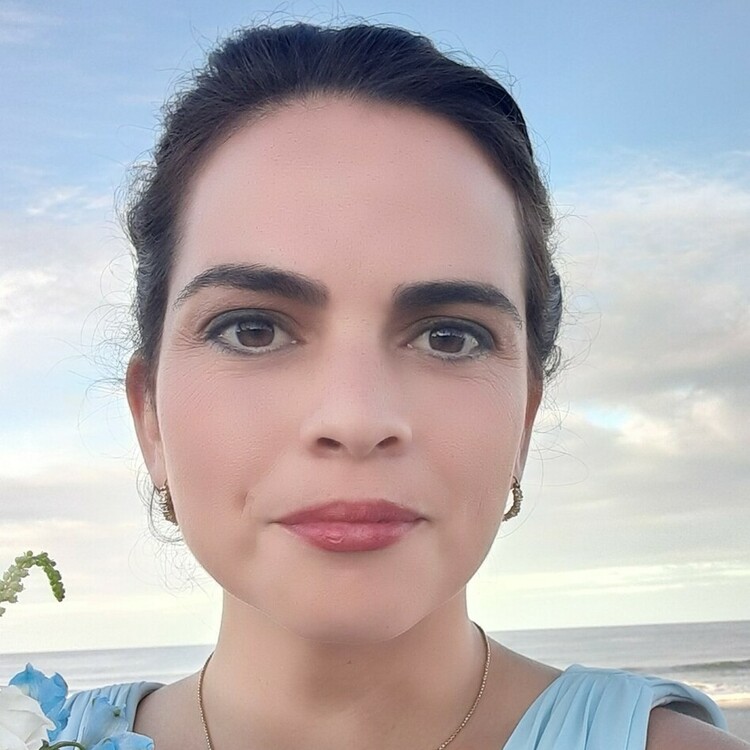
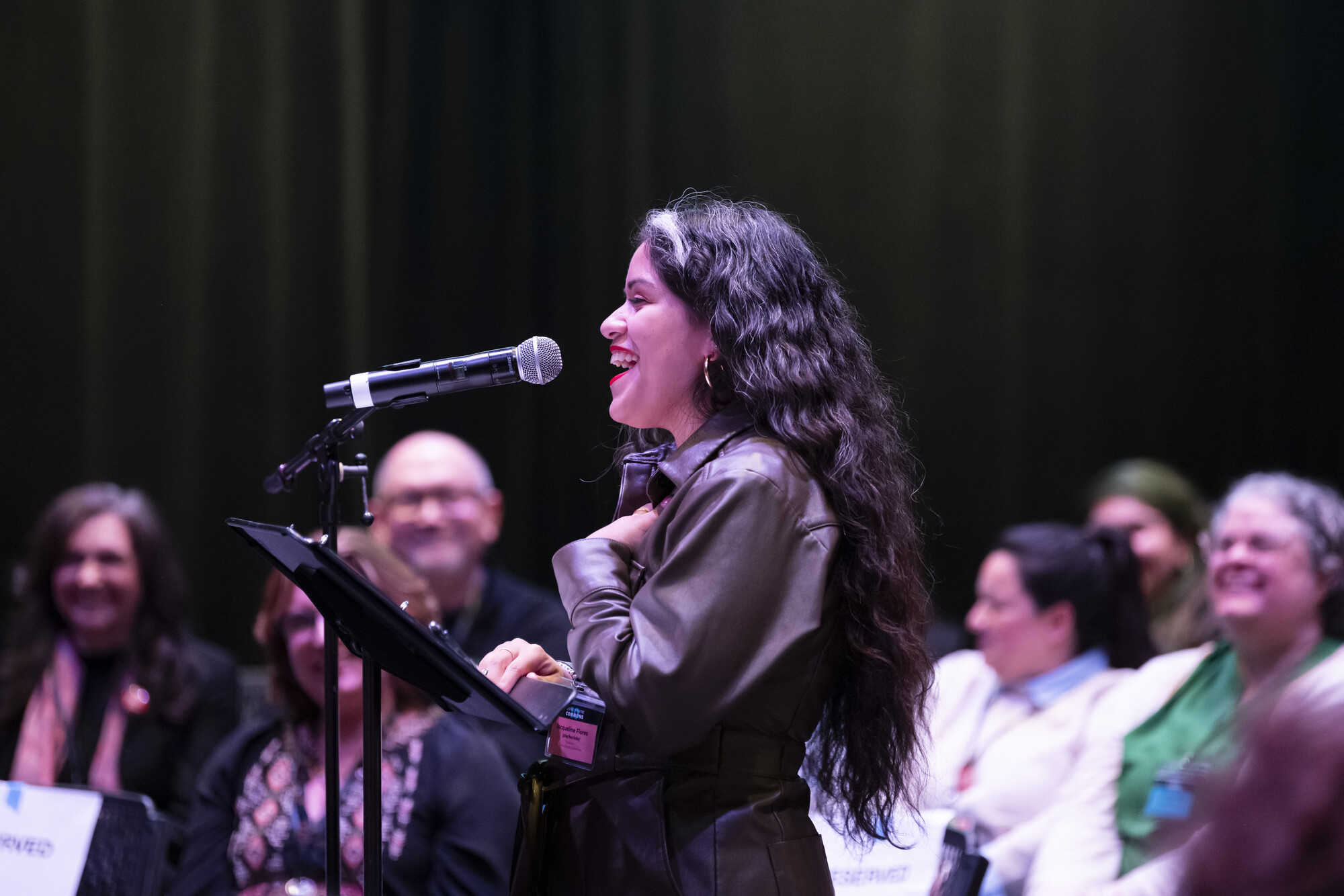
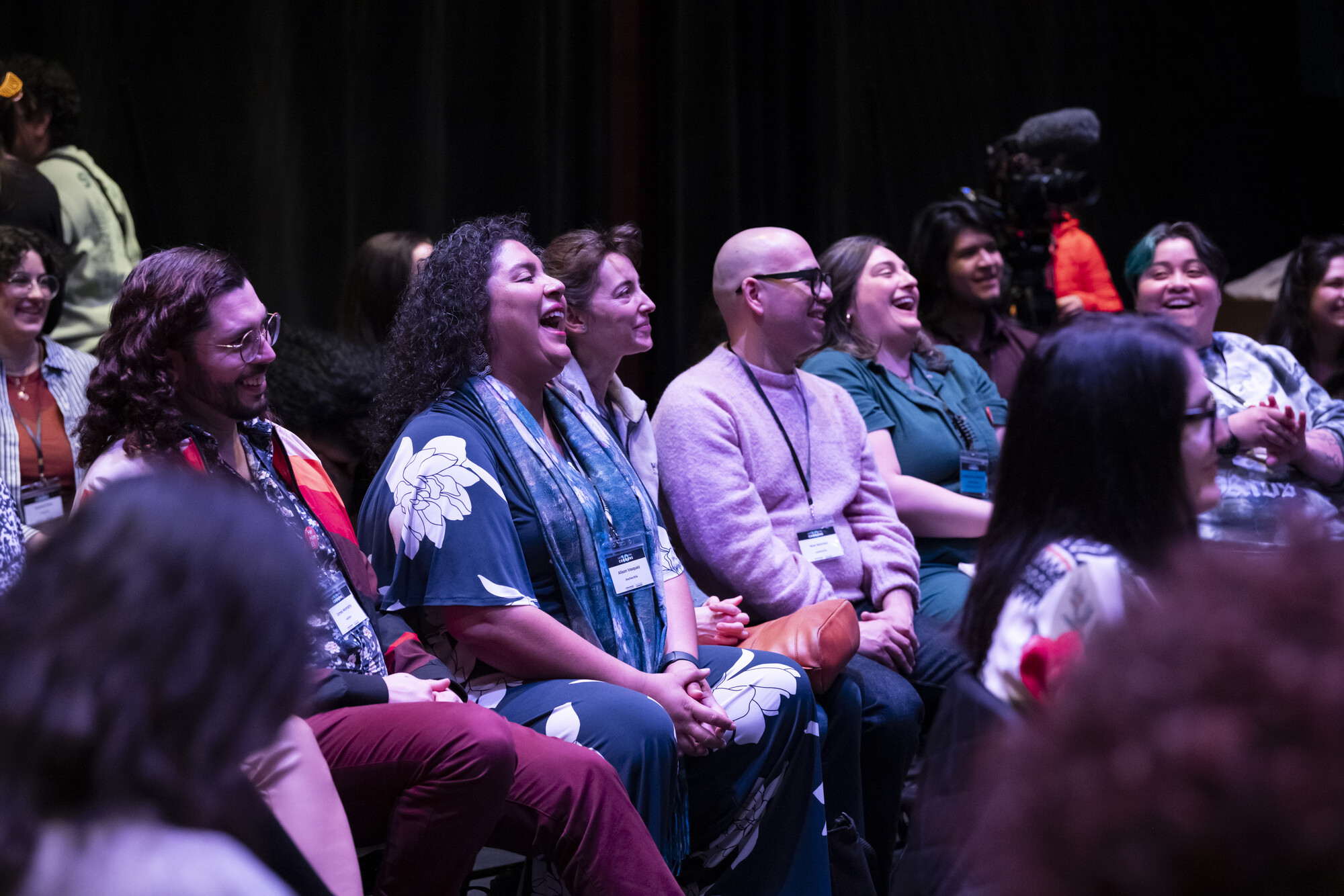
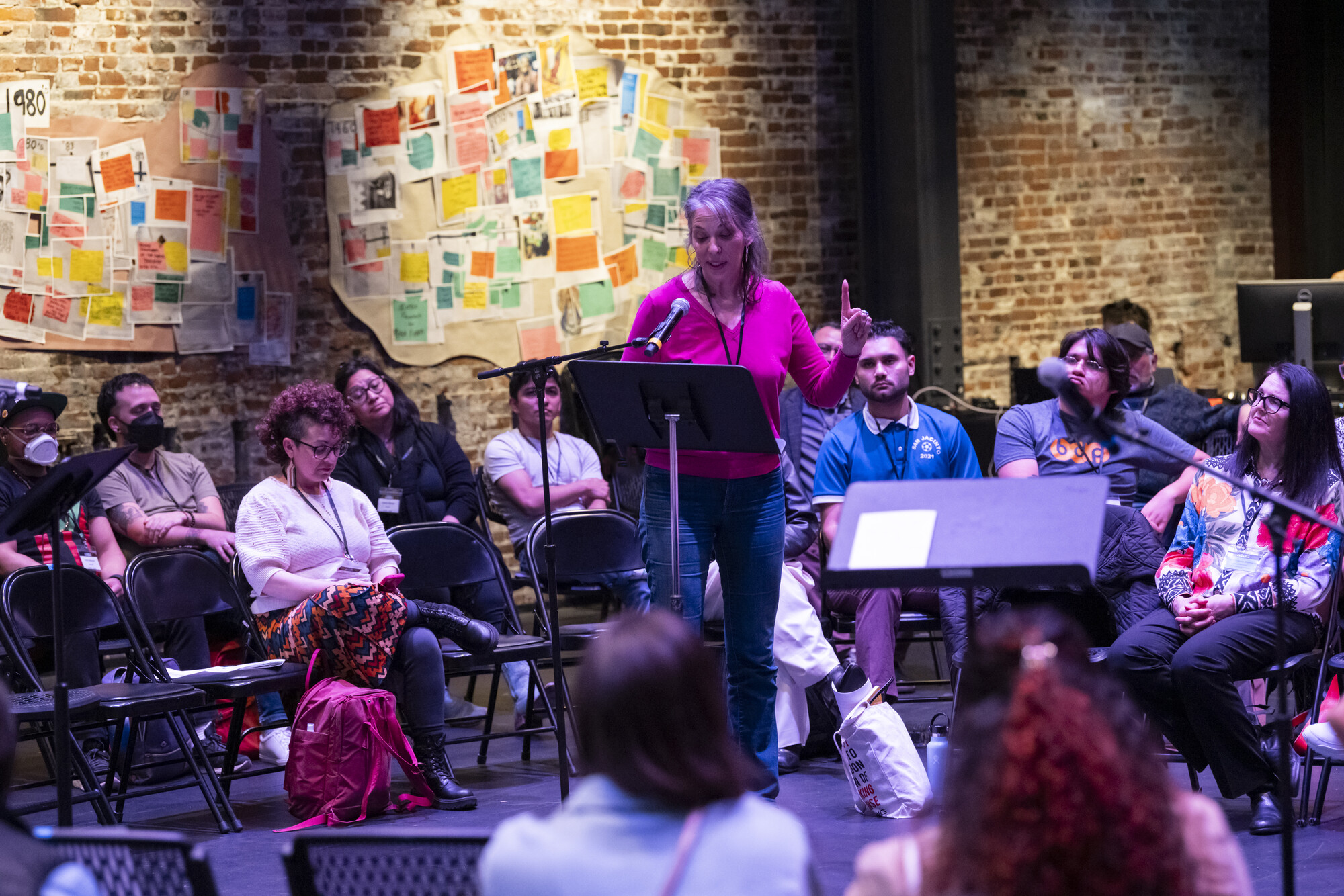
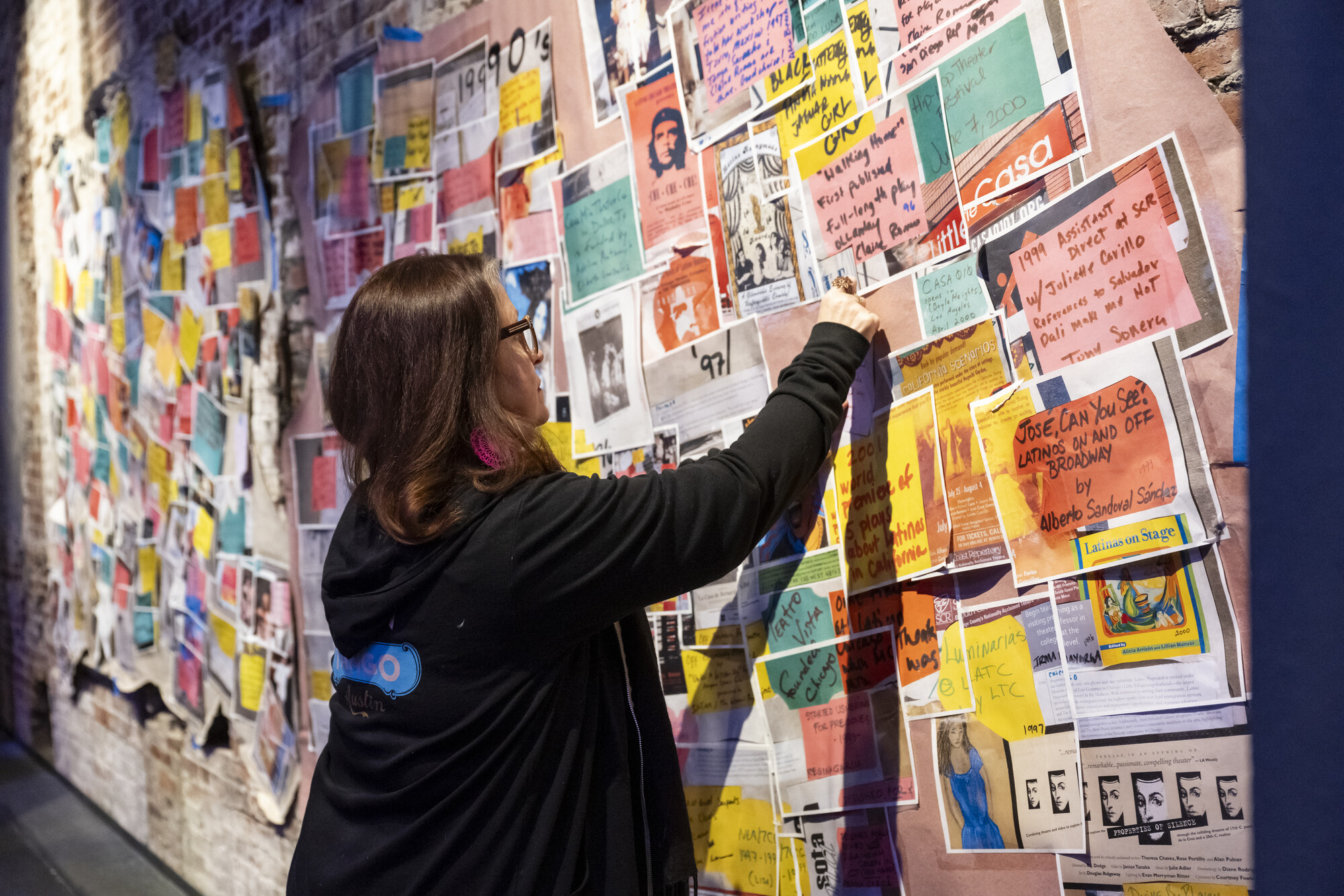

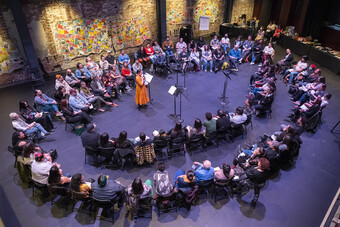



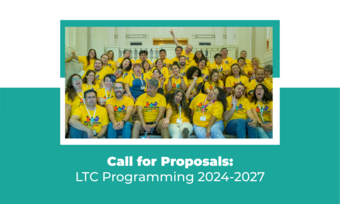

Comments
The article is just the start of the conversation—we want to know what you think about this subject, too! HowlRound is a space for knowledge-sharing, and we welcome spirited, thoughtful, and on-topic dialogue. Find our full comments policy here